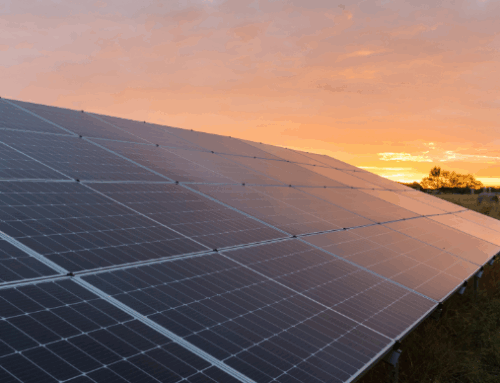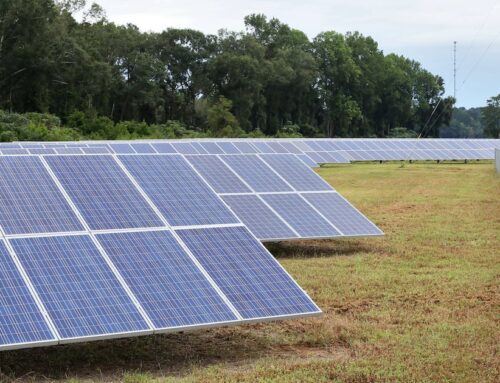New Bill: Representative Mike Thompson introduces H.R. 5862: American Energy Independence
October 30, 2025
We have received text from H.R. 5862: American Energy Independence and Affordability Act. This bill was received on 2025-10-28, and currently has 114 cosponsors.
Here is a short summary of the bill:
The American Energy Independence and Affordability Act aims to make changes to tax credits and incentives related to energy production and efficiency. Here are the main points of the bill:
Title I – Lowering Energy Costs through All-of-the-Above Energy Production
-
Clean Energy Production Credit:
The bill would restore a clean energy production tax credit. This credit supports the production of electricity from renewable sources like wind and solar, allowing for greater flexibility in transitioning away from fossil fuels. Additionally, it would no longer be phased out based on greenhouse gas emission targets. -
Clean Electricity Investment Credit:
This credit for investments in renewable energy infrastructure would also be reinstated, encouraging businesses to invest in clean energy technologies. -
Advanced Manufacturing Production Credit:
The bill aims to repeal restrictions related to this credit, promoting domestic manufacturing of clean energy technologies. -
Extension of Advance Energy Project Credit:
The legislation proposes lifting limits on this credit to support additional projects in renewable energy and efficiency. -
Clean Hydrogen Production Credit:
The date for this credit’s construction commencement would revert to allow for continued investment in clean hydrogen technologies. -
Residential Clean Energy Credit:
This credit for homeowners investing in clean energy technologies would also be continued beyond initial deadlines, making it easier for individuals to access clean energy solutions. -
Sustainable Aviation Fuel Rate:
The bill would reinstate a special rate for sustainable aviation fuel, incentivizing the production of low-carbon aviation fuels.
Title II – Lowering Energy Costs Through Energy Efficiency
-
Energy Efficient Home Improvement Credit:
The bill would require improved identification for energy-efficient products and ensure that tax credits are only available for qualified items, encouraging better compliance and selection of energy-efficient improvements in homes. -
New Energy Efficient Home Credit:
This provision extends the tax credit for new energy-efficient homes to 2032, promoting the construction of energy-efficient residential properties. -
Commercial Buildings Deduction:
The termination of tax deductions for energy-efficient commercial buildings would be reversed, incentivizing businesses to invest in energy-efficient structures. -
Restoration of Cost Recovery for Energy Property:
Businesses would be allowed to recover costs related to energy property more effectively, incentivizing investment in energy efficiency.
Title III – Ensuring America Leads the Way in Our Automotive Future
-
Previously-Owned Vehicle Credit:
The timeline for tax credits for previously-owned electric vehicles would be extended, encouraging the purchase of used electric vehicles. -
Clean Vehicle Credit:
The provisions for tax credits related to clean vehicles would also be adjusted for a longer duration, promoting the transition to cleaner transportation options. -
Commercial Clean Vehicles Credit:
The bill proposes to extend credits for qualified commercial clean vehicles to encourage businesses to invest in clean transportation. -
Alternative Fuel Vehicle Refueling Property Credit:
This credit for alternative fueling stations would be extended, supporting infrastructure growth for alternative fuel vehicles.
Relevant Companies
-
TSLA
– Tesla, Inc.: As a major player in the electric vehicle market, changes to clean vehicle credits would likely impact Tesla’s sales and market strategies. -
NIO
– NIO Inc.: Similar to Tesla, NIO could benefit from extended clean vehicle credits and incentives for electric vehicle adoption. -
FSLR
– First Solar, Inc.: As a solar energy provider, changes to investment credits for solar production would directly benefit First Solar’s business model. -
PLUG
– Plug Power Inc.: This hydrogen technology company may benefit from the restored clean hydrogen production credit, bolstering their market position.
Here are some bills which have recently been proposed by Representative Mike Thompson:
- H.R.5862: American Energy Independence and Affordability Act
- H.R.4354: Agricultural Emergency Relief Act of 2025
- H.R.4206: CONNECT for Health Act of 2025
- H.R.3936: Bicycle Commuter Act of 2025
- H.R.3223: To amend the Internal Revenue Code of 1986 to establish procedures relating to the attribution of errors in the case of third party payors of payroll taxes, and for other purposes.
- H.R.2085: Mental Health Research Accelerator Act of 2025
You can track bills proposed by Representative Mike Thompson on Quiver Quantitative’s politician page for Thompson.
This article is not financial advice. See Quiver Quantitative’s disclaimers for more information.
Search
RECENT PRESS RELEASES
Related Post



